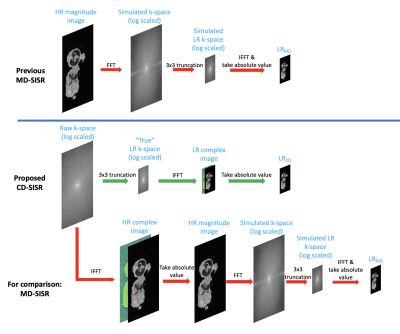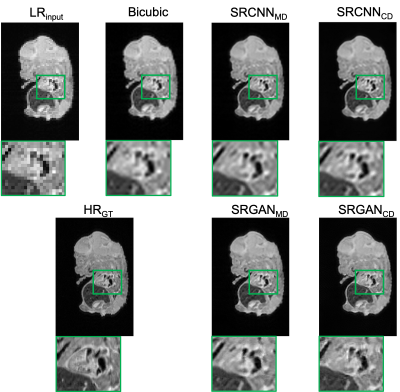Zihao Chen1,2, Yuhua Chen1,2, Ankur Saini3, William Devine3, Yibin Xie1, Cecilia Lo3, Debiao Li1,2, Yijen Wu3, and Anthony Christodoulou1
1Biomedical Imaging Research Institute, Cedars-Sinai Medical Center, Los Angeles, CA, United States, 2Department of Bioengineering, UCLA, Los Angeles, CA, United States, 3Department of Developmental Biology, University of Pittsburgh, Pittsburgh, PA, United States
1Biomedical Imaging Research Institute, Cedars-Sinai Medical Center, Los Angeles, CA, United States, 2Department of Bioengineering, UCLA, Los Angeles, CA, United States, 3Department of Developmental Biology, University of Pittsburgh, Pittsburgh, PA, United States
We propose a deep learning based approach for 3x3 super-resolution (SR) of mouse embryo images (sub 50 μm resolution) using raw k-space data. Our method can reduce the scan time by a factor of 9 while preserving the diagnostic details and shows better quantitative results than previous SR methods.

